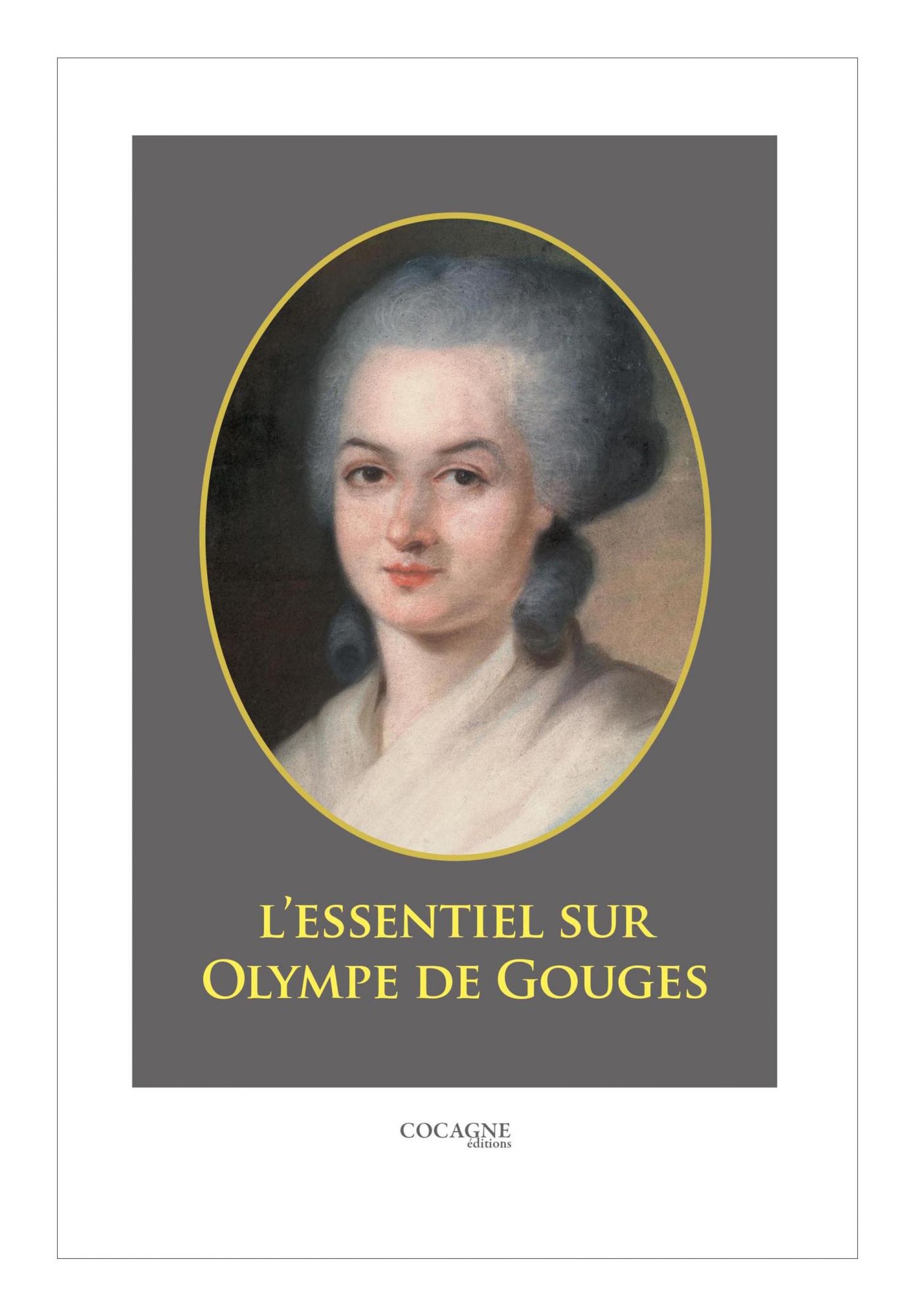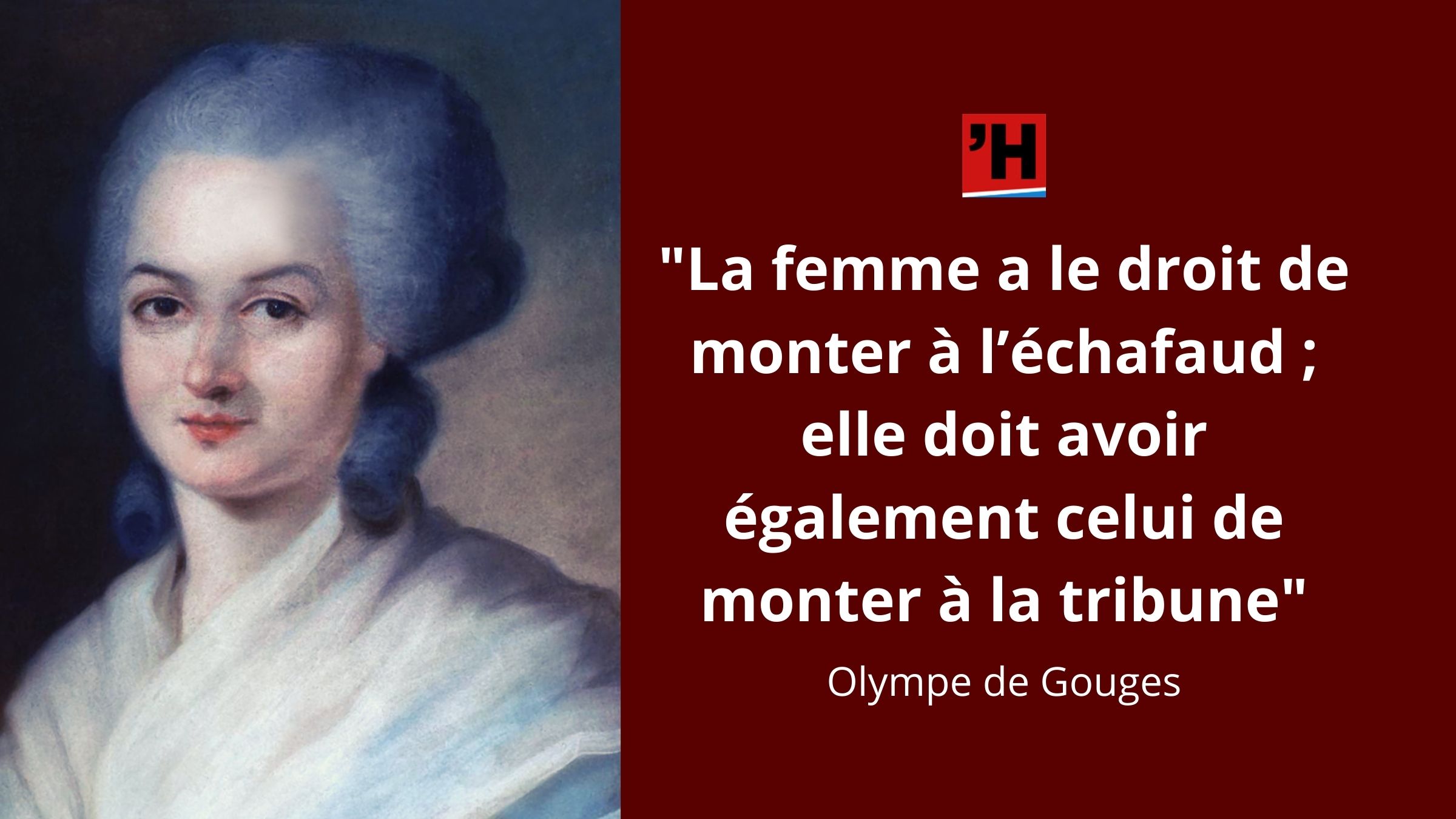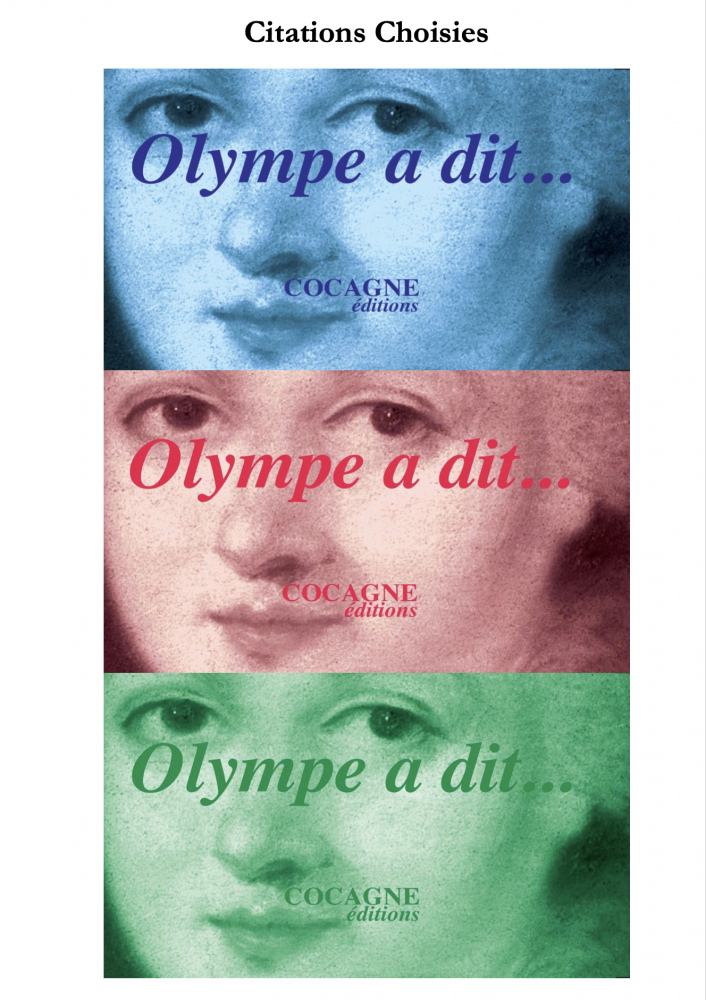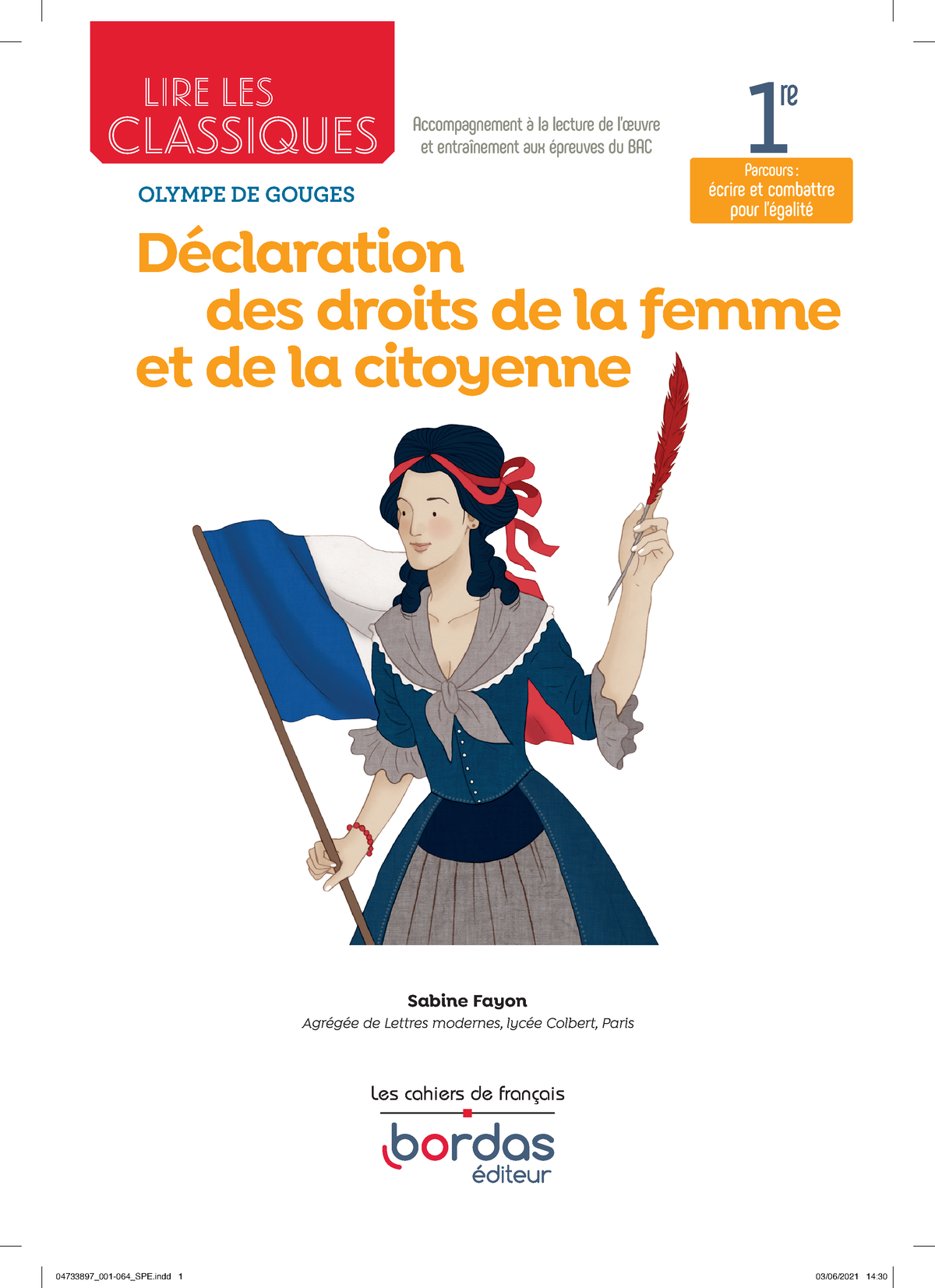
Olympe de Gouges Quotes (6 wallpapers) Quotefancy
Pierre died in 1750. [5] The primary support for the identification of Pompignan as Marie Gouze's father is found in her semi-autobiographical novel, Mémoires de Madame de Valmont, published after Pompignan's death. [1]

Épinglé sur franz. rev. Olymp Menschenrechte/Frauenrechte
Recommended Citation Woolfrey, J. (2015). Olympe de Gouges (1748—1793).. Extant Works by Olympe de Gouges (in French) a. On-line English Translations of Gouges's Original Works b. Secondary Sources in English (except Blanc) 1. Early Life Details are limited. Born Marie Gouze in Montauban, France in 1748 to petite-bourgeois parents

OLYMPE DE GOUGES Desmotivaciones
Trouvez une citation de Olympe de Gouges : une phrase, un proverbe, une maxime, une réflexion, une formule ou bon mot, un dicton ou une expression tirée de ses romans, de courts extraits de ses livres, essais, discours ou interviews. Une sélection de 20 citations d' Olympe de Gouges . Olympe de Gouges Biographie + Crédit photographie +

Le Qui a dit du jour ! Physicienne, Benjamin franklin, Le tiers etat
Olympe de Gouges, (born May 7, 1748, Montauban, France—died November 3, 1793, Paris), French social reformer and writer who challenged conventional views on a number of matters, especially the role of women as citizens. Many consider her among the world's first feminists.

Olympe de Gouges Quotes (6 wallpapers) Quotefancy
First Online: 05 December 2019 70 Accesses Download reference work entry PDF The Character Marie Gouze was born in Montauban on the 7th of May 1748 to petit bourgeois parents, Pierre Gouze and Anne-Olympe Mouisset, perhaps the biological daughter of Jean-Jacques Le Franc de Pompignac, nobleman and provincial intellectual.

L'essentiel sur Olympe... Association des éditions Cocagne MAISON DE LA MÉMOIRE & DES ÉCRITURES
Description Marie Gouze (1748-93) was a self-educated butcher's daughter from the south of France who, under the name Olympe de Gouges, wrote pamphlets and plays on a variety of issues, including slavery, which she attacked as being founded on greed and blind prejudice.

Olympe de Gouges quo Quotes, The past, Herstory
Olympe de Gouges: A Woman too Revolutionary for Revolution Grace A. Green Harding University, [email protected] Follow this and additional works at: https://scholarworks.harding.edu/tenor Part of the History Commons Recommended Citation Green, Grace A. (Spring 2020) "Olympe de Gouges: A Woman too Revolutionary for Revolution," Tenor of

Citation De Olympe De Gouges Citation Sur la Solitude
Olympe de Gouges. Une page de Wikiquote, le recueil des citations libres. Olympe de Gouges. Marie Gouze, dite Marie-Olympe de Gouges, née à Montauban le 7 mai 1748 et morte guillotinée à Paris le 3 novembre 1793, est une femme de lettres française, devenue femme politique et polémiste, durant la Révolution française.

[532] Citation De Olympe De Gouges Télécharger
Olympe de Gouges. Olympe de Gouge (7 May 1748 - 3 November 1793), born Marie Gouze, was a French playwright and political activist who championed numerous political causes of the time including the rights of women, the abolition of slavery, and the support for the French First Republic.. Quotes [edit] Declaration of the Rights of Women (1791) [edit].

Olympe De Gouges quotes wise famous quotes, sayings and quotations by Olympe De Gouges
Following the preamble, Gouges included 17 articles outlining the basic rights that should be extended to women, including the right to liberty, property, security, and resistance to oppression; the right to participate fully in the making of laws that they are to abide by; the right to participate at all levels of government; and the right to v.

Produits Olympe de Gouges Association des éditions Cocagne MAISON DE LA MÉMOIRE & DES
Olympe de Gouges, originally Marie Gouze was born on May 7, 1748 in Montauban (Occitanie region of southwestern France) and died on November 3, 1793 in Paris. She was a social reformer and playwright who advocated for all those she saw as under represented including orphaned children, and women (especially unwed women)..

Olympe de Gouges Quotes (6 wallpapers) Quotefancy
Citations d'Olympe de Gouges dans un devoir au bac de l'EAF Accueil Préparer l'épreuve anticipée de français bac 2024 "La littérature d'idées du XVIe siècle au XVIIIe siècle" Bac 2024 Olympe de Gouges, "Déclaration des droits de la femme et de la citoyenne" (du "préambule" au "postambule") / Parcours : "Écrire et combattre pour l'égalité".

Épinglé sur Citations historiques Histoire de France en citations
4,685 Views 0 CrossRef citations to date 0 Altmetric Listen Open Commentaries Equality and Difference in Olympe de Gouges' Les droits de la femme. A La Reine Martina Reuter Pages 403-412 | Received 02 Aug 2019, Accepted 15 Oct 2019, Published online: 23 Apr 2021 Cite this article https://doi.org/10.1080/24740500.2020.1840652 In this article

Olympe de gouges, les droits de la femme et de citoyenne Lire les classiques 1 re
Olympe de Gouges, though a well-known historical figure, has not been investigated as a philosopher until quite recently. Yet, many of her writings have philosophical import, whether they are written in the genre of the philosophical treatise, drama or political pamphlets. In the three main sections, the author gives an overview of some of her.

Olympe de Gouges Tome I Association des éditions Cocagne MAISON DE LA MÉMOIRE & DES ÉCRITURES
Olympe de Gouges (born Marie Gouze; May 7, 1748-November 3, 1793) was a French writer and activist who promoted women's rights and the abolition of slavery. Her most famous work was the "Declaration of the Rights of Woman and the Female Citizen," the publication of which resulted in Gouges being tried and convicted of treason.

7 mai 1748 naissance d'Olympe de Gouges. L’une des premières féministes de l’histoire, à une
Olympe de Gouges and her work. Olympe de Gouges was born in 1748 in Montauban in the Languedoc, south of France. Her story is the story of a fascinating social rise and intellectual development of someone who was condemned for a petty bourgeois and provincial life; her story is also the story of a woman who claimed a place in arenas reserved for men (Blanc Citation 2003).